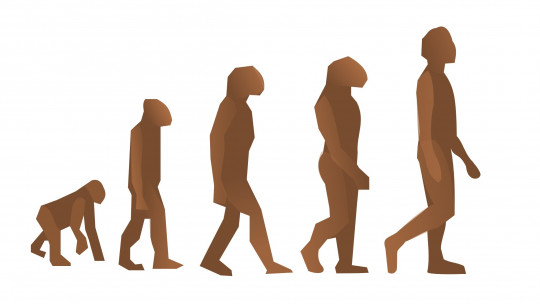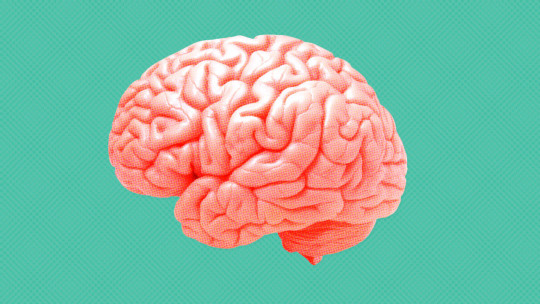
It is easy to confuse between them psychology and philosophy, perhaps because both can be applied in a wide variety of areas and address topics that go beyond what is material and constant over time. There is a vague notion that both can issue advice and propose norms, behavioral guides and life lessons, but knowing where the field of study of one begins and where that of the other ends is not so simple.
However, that does not mean that there are no clear lines separating each of its realms of research and application Here I propose six differences between psychology and philosophy that can help you better guide you in these types of issues.
Main differences between philosophy and psychology
This is a summary of the ideas to take into account to distinguish between philosophy and psychology.
1. They learn differently
The teaching of psychology is based on methodologies that incorporate very specific tools that go far beyond the careful reading of texts: experimentation with volunteers, observation of body parts with a microscope, use of statistical programs, etc.
Philosophy, although it can also use certain instruments such as those mentioned, It does not have such a broad consensus regarding which methodologies to follow If something defines it, it is precisely the flexibility when it comes to establishing what its purpose should be and what the ways to reach it should be (that is, reflection about that same thing can already be considered philosophy).
Thus, while in psychology there is a more or less clear accumulation of knowledge, in philosophy it is possible to make important advances starting almost from scratch. For example, while learning psychology involves being aware of the most important research that has been taking place in recent years or even months, in philosophy this is not necessary. As a consequence, work in the field of philosophy can give rise to lines of research that are relatively isolated from each other, while in psychology the creation of knowledge that can lead to consensus is encouraged.
2. They investigate with different methodologies
One of the main differences between psychology and philosophy is found in the type of methodologies that, in practice, are used in each one. Philosophy is independent of the scientific method since it works rather with conceptual categories and the relationship established between them, and therefore can use practically any instrument and method for its investigations. psychology instead, relies on empiricism to develop hypotheses about behavior and perception of the human being. Therefore, quantitative (especially experimental) and statistical research are of great importance in psychological research, which means that taking small steps in understanding the psyche is expensive and involves many people.
3. Their objectives are different
Classically, philosophy has had intellectual purposes, and its greatest goal has been the creation of philosophical categories and systems that serve to explain reality (or realities) in the best possible way. Philosophy tends to study a whole, rather than specific components of reality. It can also serve as a tool for collective emancipation, as proposed by some philosophical currents inherited from Marxism, and therefore addresses the usefulness of certain cultural and interpretive frameworks to understand reality.
Psychology, despite having countless applications, delimits a object of study more specific: human behavior and its emotional and subjective dimension For this reason, his hypotheses and theories always start from the human body or the subjectivity of people, alone or in relation to each other. It almost never addresses the search for a reality totally alien to the existence of people, something that has historically occurred in some philosophical proposals.
4. They use different languages
Much of psychology consists of research through the scientific method, and therefore seeks empirical bases that help her propose theoretical models well received by the scientific community. As a consequence, agreement on the meaning of words is constantly being sought, to expedite research in certain areas and so that several researchers from various areas of the world can collaborate on the same line of research.
Philosophy, however, can be found in philosophical systems formulated by a single person That is why the main personalities in philosophy use personal and idiosyncratic language, not agreed upon with others, and the same word or expression can mean very different things depending on the philosopher who formulates them. Philosophy students need to dedicate a lot of time to studying each of the authors before understanding what they are referring to in each case.
5. Philosophy permeates everything, psychology is specific
Philosophy provides all sciences with analytical categories from which to study reality, while it does not have to be affected by scientific discoveries. But philosophy goes beyond science and began to exist before it. In fact, By writing this text I am doing something more similar to philosophy than psychology because I am deciding from which perspective to approach each of the concepts, which aspects to highlight and which to omit.
The Psychology, as it is part of one of the different layers of science, is crossed by these philosophical debates that do not have to be part of the subject you intend to study. However, he goes beyond philosophical activity, attempting to create knowledge through science. Of course, this information provided by research (and the data on which that information is based) must be interpreted from a certain perspective, and knowing which is the best forces researchers to ask themselves philosophical questions.

6. Philosophy addresses morality, psychology does not
Philosophy wants to explain everything that can be explained, and this includes the study of correct ways to behave. That is why many of the great figures of this discipline have offered their ways of understanding the categories of “good” and “bad”, sometimes with the intention of creating universal ethical criteria, and sometimes with the intention of creating as just a morality for certain human communities.
Psychology remains outside of this type of debate and, in any case, will give information about what types of behaviors can be useful to get closer to a goal, adopting a more pragmatic logic. Furthermore, it is possible for a researcher to study the psychological foundations behind different types of morality in different cultures, but they will not study morality itself, but rather its origins.
Furthermore, contributions from psychology can be used to propose the establishment of ethical scales and theories of morality.








